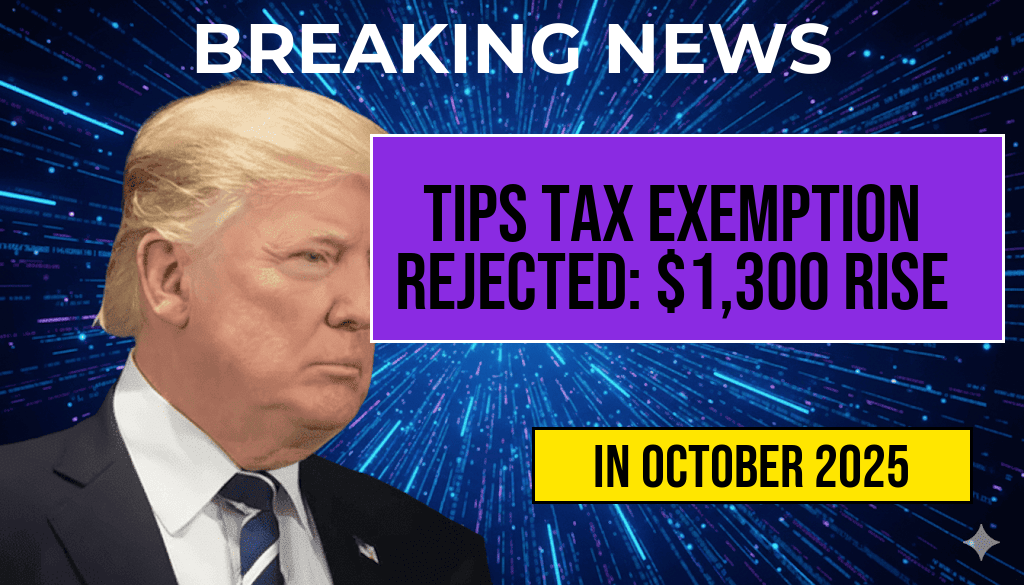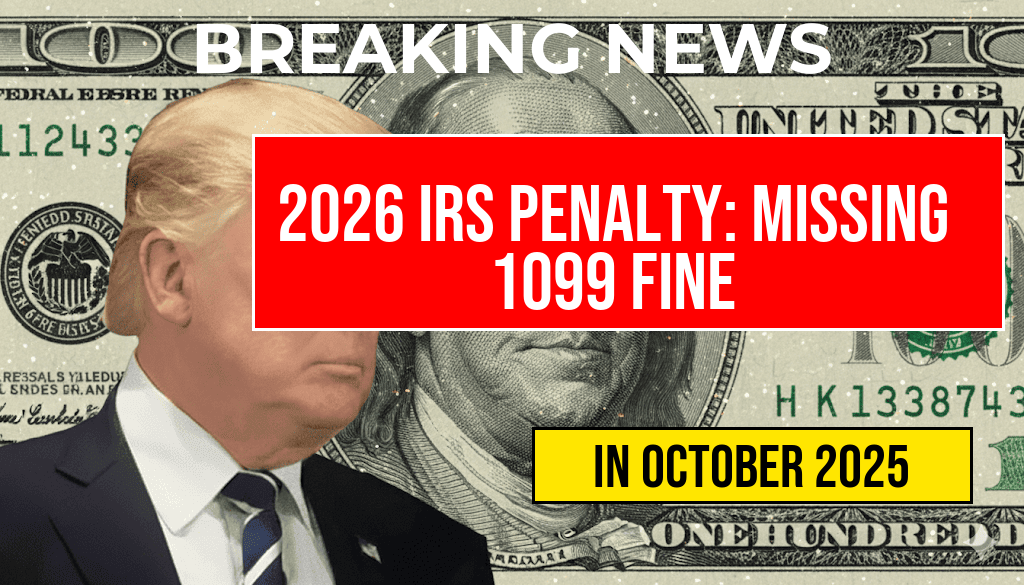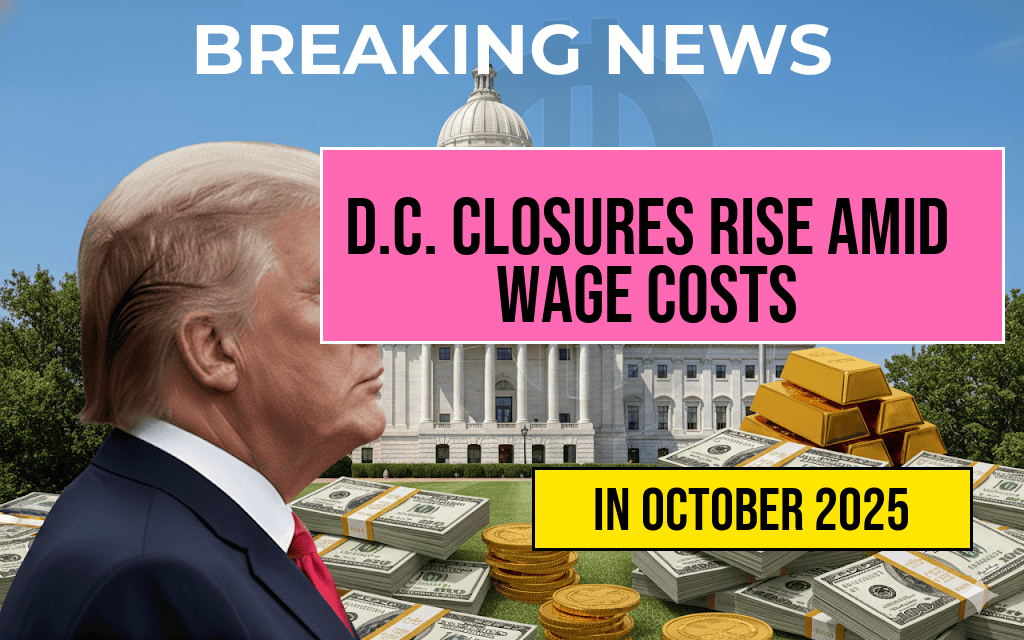IRS Penalties in 2026: Missing a 1099 Could Cost You $290 Per Form
A recent update from the Internal Revenue Service (IRS) underscores the importance of accurate and timely reporting of 1099 forms for the upcoming tax year. Starting in 2026, taxpayers and businesses who fail to submit required 1099 forms or submit incomplete or incorrect information may face significant penalties, with fines reaching up to $290 per missing or late form. This change intensifies the compliance landscape, emphasizing the need for meticulous recordkeeping and proactive reporting strategies to avoid costly penalties.
The IRS’s increased enforcement efforts aim to ensure that income paid to independent contractors, freelancers, and other non-employees is properly documented and taxed. The penalty structure is designed to motivate payers to adhere strictly to reporting deadlines and accuracy standards. Given the financial implications—especially for small businesses and sole proprietors—understanding the new rules is crucial for avoiding unforeseen expenses that could impact overall tax obligations.
Details of the New Penalty Structure
Beginning with the 2026 tax season, the IRS will enforce a penalty of **$290 per missing or late 1099 form** for each failure to file or furnish the correct information. This applies to various types of 1099 forms, including the commonly used 1099-NEC (Nonemployee Compensation) and 1099-MISC (Miscellaneous Income). The penalty applies regardless of whether the omission was intentional or accidental, underscoring the importance of thorough compliance.
For context, the IRS previously imposed penalties that varied based on how quickly the correct forms were filed after the deadline, with a maximum penalty that could escalate into thousands of dollars per year. However, starting with 2026, the flat rate of $290 per violation simplifies the penalty calculation but also increases potential costs for non-compliance.
Who Is Affected?
The new penalties impact:
- Businesses and self-employed individuals responsible for issuing 1099 forms to independent contractors, freelancers, and vendors.
- Organizations that fail to file or submit incorrect forms by the IRS deadlines.
- Tax professionals and payroll providers who prepare and transmit these forms on behalf of clients.
This change emphasizes the importance of maintaining accurate records of all payments made to non-employees, especially given the broader push for transparency and combating tax evasion.
Key Compliance Tips
To mitigate the risk of penalties, taxpayers and businesses should consider the following strategies:
- Early preparation: Gather all relevant payment information well before the filing deadline.
- Double-check details: Ensure Social Security numbers, Employer Identification Numbers (EINs), and payment amounts are correct.
- Utilize reliable software: Use up-to-date accounting and reporting tools designed to comply with IRS requirements.
- Consult professionals: Engage tax advisors to review filings and ensure adherence to new regulations.
Employers should also keep detailed records of all payments made, including canceled checks, bank transfers, and invoices, to support their filings if questioned by the IRS.
Implications for Small Businesses and Freelancers
Small businesses and independent contractors are particularly vulnerable to these increased penalties. For many, missed or incorrect 1099 submissions can lead to unexpected costs that strain cash flow. Moreover, failure to report accurately can trigger IRS audits or delays in processing returns, adding to administrative burdens.
Recognizing the importance of compliance, the IRS has increased educational outreach, providing resources and guidance on proper reporting procedures. The [IRS website](https://www.irs.gov/businesses/filing-information-returns-electronically) offers comprehensive instructions and updates to ensure stakeholders understand their obligations.
Potential Changes and Future Outlook
While the $290 penalty per form is set for 2026, the IRS retains authority to adjust penalty amounts annually for inflation. Stakeholders should stay informed through official channels and consider implementing automated systems to reduce errors and omissions.
The broader focus on transparency and accountability suggests that future enforcement efforts may extend beyond penalties, potentially including stricter audits and increased data matching between IRS records and reported income.
| Year | Penalty per Form | Maximum Penalty (per year) |
|---|---|---|
| 2024 | $290 (proposed) | Varies based on severity and timing |
| 2025 | Projected to remain at $290 | Increases could be implemented |
| 2026 | $290 | Dependent on total violations |
As enforcement intensifies, stakeholders are advised to prioritize accurate and timely reporting to avoid substantial fines that can significantly impact financial health.
Resources for Compliance Assistance
– IRS Filing Instructions: IRS Form 1099-NEC guidance
– Taxpayer Assistance: IRS contact information
– Small Business Resources: SBA website
Remaining vigilant about filing deadlines and maintaining accurate records will be essential as the IRS enforces these new penalties. The shift underscores the ongoing effort to improve tax compliance and close loopholes that can lead to revenue loss.
Frequently Asked Questions
Question
What is the penalty for missing a 1099 form in 2026?
The IRS may impose a fine of up to $290 per missing 1099 form in 2026.
Question
Which 1099 forms are subject to penalties if not filed?
All required 1099 forms, including 1099-NEC and 1099-MISC, must be filed accurately; failure to do so can result in penalties.
Question
How can I avoid penalties for missing a 1099 form?
Ensure timely and accurate filing of all required 1099 forms. Use reliable accounting software or consult with a tax professional to prevent omissions.
Question
What happens if I file the 1099 form late or incorrectly?
Late or incorrect filings can lead to penalties, including the $290 fine per missing form, and may trigger IRS audits or further penalties.
Question
Are there any exceptions or waivers for the 1099 penalty?
Exceptions are rare, but certain small errors or reasonable cause can sometimes qualify for penalty relief. It’s best to consult the IRS guidelines or a tax professional for specific cases.









